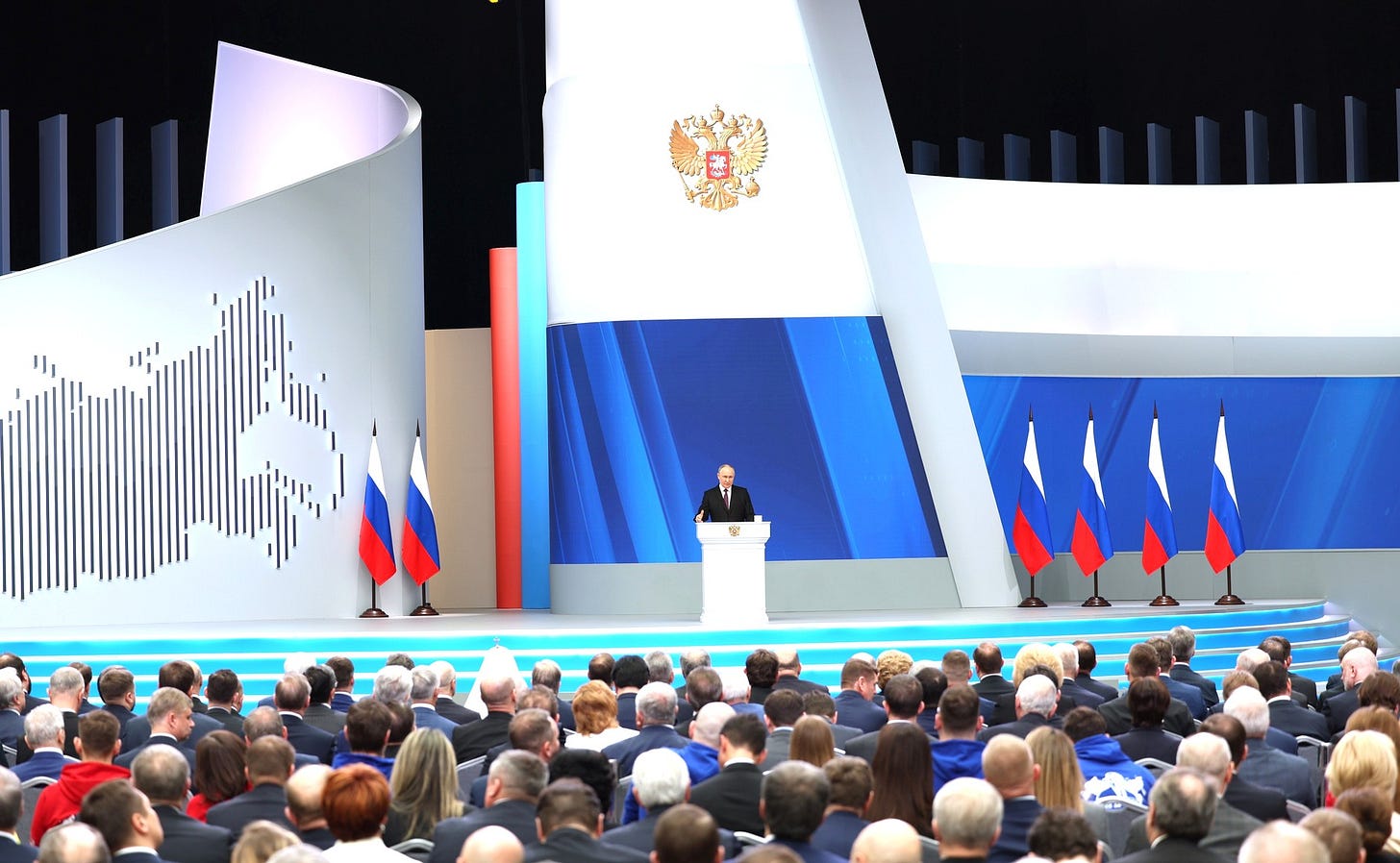BRICS' Role in the Future of Global Economy and Financial Independence
Building a new global financial architecture that would be free from any political interference.
Changes are afoot in the global economy according to Russian Finance Minister Anton Siluanov in a recent interview with RIA Novosti. Siluanov suggests a redistribution of power and wealth from West to East, with emerging giants like China overtaking establishment G7 countries. This transition is creating tensions, as declining powers try to constrain rising nations through sanctions. However, Siluanov argues transformation appears inevitable.
A key theme Siluanov emphasizes is the need for reliable partners to navigate turbulence. Here, he sees BRICS countries like China and India offering safe harbors, sharing interests in resilient payment systems independent of Western control. Siluanov proposes BRICSBridge, linking the CBDC of BRICS countries and financial messaging networks to foster trade.
The Tectonic Shift in the Global Economy
Siluanov's observations on the tectonic shifts in the global economy set the stage for a broader discussion on the implications of these changes. The transition, while promising, is not without its pains, particularly for established economic powers. The rise of BRICS nations (Brazil, Russia, India, China, and South Africa), along with new members like Saudi Arabia, UAE, Iran, Ethiopia, and Egypt, signifies a key moment in global economic dynamics. This shift challenges the traditional dominance of Western economies and opens up new avenues for cooperation and development among emerging markets.
The Quest for an Independent Payment System
One of the most intriguing aspects of Siluanov's interview is the discussion around the creation of an independent payment system by BRICS nations. This initiative aims to reduce dependency on Western financial infrastructure, which is often seen as a tool for political leverage. The development of such a system could revolutionize trade among these nations, offering a faster, cheaper, and more secure method for transactions. This move towards financial autonomy not only highlights the technological advancements in financial services but also the desire for economic sovereignty among BRICS nations.
We will continue to work with friendly countries to create effective and safe logistics corridors, relying on cutting-edge solutions for building a new global financial architecture that would be free from any political interference.
This is especially important considering that the West has been undermining its own currencies and banking system by literally sawing off the branch it is sitting on.
President Vladimir Putin - Address to the Federal Assembly, Feb. 2024
On opportunities arising, Siluanov stresses BRICS partners can exchange technologies and strengthen economic ties to weather volatility. He highlights how Russia's economy grew 3.6% last year despite sanctions, with industrial production rising 3.5% and real disposable incomes growing 5.4%. Siluanov says measures to ensure technological and financial independence are yielding results.
With Russia holding the BRICS presidency in 2024, Siluanov mentions priorities like payment systems to enable trade despite Western restrictions. He notes BRICS countries already account for a large share of Russia's foreign trade, giving them incentive to establish independent settlement channels. Siluanov says connecting existing central bank digital currency systems could offer a modern, fast, and low-cost platform for BRICS members.
Regarding markets, Siluanov is unconcerned about recent drops in Chinese stocks, arguing the economy's nearly 5% growth rate remains high. He sees China's strong fundamentals as positive for BRICS countries, supporting demand for exports and commodities.
Regarding fiscal policy, Siluanov notes most Western countries now have debt exceeding 100% of GDP and are running deficits. Meanwhile, BRICS members generally keep debts under 60% of GDP and balance budgets judiciously. Siluanov suggests global governance structures like the IMF, where developing countries have little voice, will cede influence to groups like the BRICS-led New Development Bank where emerging economies have equal standing.
The Unique Atmosphere of BRICS Meetings
Siluanov's comparison of the atmosphere in BRICS meetings to that of the G8 is particularly telling. The collaborative and inclusive nature of BRICS gatherings contrasts sharply with the more exclusive and, at times, divisive G8 meetings. This difference underscores a shift towards a more multipolar world where emerging economies are seeking to assert their influence and priorities on the global stage. The emphasis on mutual support and cooperation among BRICS nations is a testament to their collective ambition to reshape the global economic order.
Discussing the freezing of Russian assets in the West, Siluanov notes this is an issue for the Bank of Russia to address. However, he warns that any actions taken against Russian assets will be met with symmetrical responses.
Conclusion
Siluanov paints a picture of realignment in the global economic order as emerging powers rise. He suggests strong BRICS cooperation can help Russia withstand Western constraints while pursuing independent technological and financial policies. Ensuring budget discipline and prudent fiscal policies will also keep Russia's economy on and by adjusting to the changing landscape, Siluanov argues Russia can navigate uncertainty and find opportunities for economic growth.
Siluanov's insights offer a fascinating glimpse into the potential future of global economics, where emerging markets play a more central role, and financial independence becomes a key objective. The evolution of BRICS from a loose coalition to a potentially powerful economic bloc with its own financial infrastructure could redefine global economic relations in profound ways. As we witness these changes, it's crucial to consider their implications for global stability, cooperation, and development.



